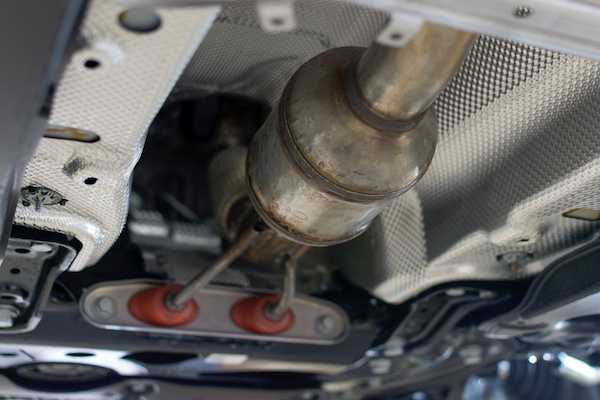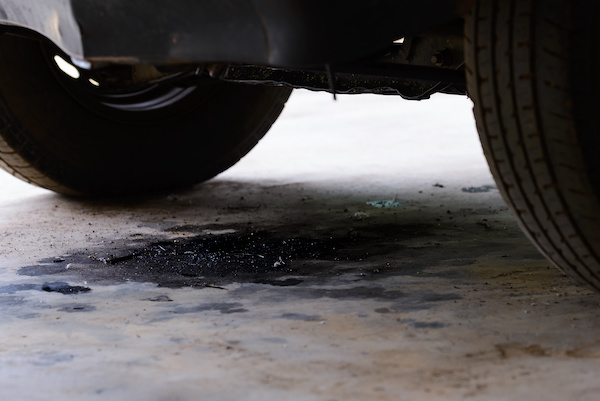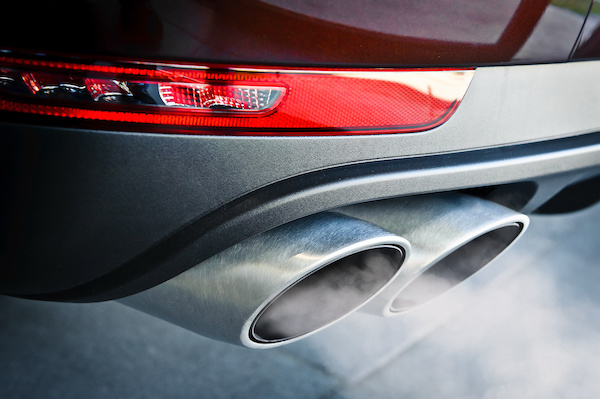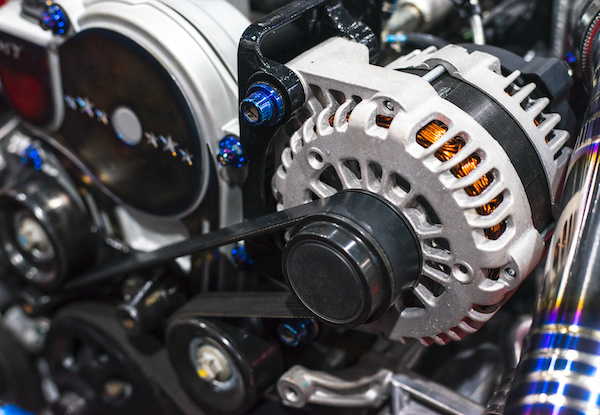Posted on 2/28/2023

Catalytic converters are one of the most important components of a modern vehicle's exhaust system. They are designed to clean up harmful pollutants in the exhaust gases produced by a car engine, making them environmentally friendly. In this blog, we'll explain what catalytic converters are, how they work, and why they are so crucial to the health of our environment and our vehicles. A catalytic converter is an exhaust device that is mounted in a vehicle's exhaust pipe, between the engine and the muffler. It contains a ceramic or metallic honeycomb-shaped substrate that is coated with catalysts like platinum, palladium, and rhodium. When the exhaust gases flow over this substrate, the catalysts trigger chemical reactions that convert harmful pollutants into less harmful emissions. The primary pollutants that catalytic converters help to clean up are nitrogen oxides (NOx), hydrocarbons (HC), and carbon monoxide (CO). NOx is a major contributor to smog and air pollution, wh ... read more
Posted on 1/30/2023

Whether you notice a couple drops or a large, dark puddle of engine oil, oil leaks are overall a major concern. After all, your engine needs oil to operate fully. Ignoring such problems can cause extensive damage to your vehicle down the line. Today, we will discuss what are the most common causes of oil leaks in motor vehicles. Reason #1: Old or Poorly Installed Filter A common culprit of oil leaks is a dirty or expired oil filter. When a filter is left in an engine for too long, it can cause engine problems. Another explanation is for the poor installation of an oil filter. That is why we recommend bringing your vehicle to Torque Automotive for a full oil change service. Reason #2: Loose Oil Plug or Cap The oil cap is the best place to look for following a detection of a leak. If the plug wasn’t secured, you’ll notice a leak right away. The cap is located on top of the engine. On the other hand, the plug is underneath the engine on the oil pan. These are ... read more
Posted on 12/21/2022
.jpeg)
Winter can be a tough time for your car. Cold temperatures can cause all sorts of issues, from dead batteries to frozen door locks. In this blog post, we'll explore some of the ways that winter temperatures can affect your car, and what you can do to prepare for the cold. Batteries Cold temperatures can be hard on car batteries, as they can cause a chemical reaction that reduces their ability to hold a charge. This means that your battery may not have enough power to start your car on a cold winter morning. To help prevent this issue, it's a good idea to have your battery tested before winter starts. You can do this at most auto parts stores or at a mechanic. If your battery is more than three years old, it might be a good idea to replace it before the winter weather hits. Oil Thicker oil is needed in the winter to help reduce friction and protect your engine. If you're due for an oil change, make sure to switch to a winter-grade oil before the cold weather arrives. D ... read more
Posted on 11/30/2022

If your vehicle is running exceptionally louder than usual and not as efficiently as it used to, it may be time to take a look at your muffler. The good news is that a muffler can be repairable. And sometimes, it may be another part of the exhaust system at fault. Before we get into the signs of a bad muffler, you should be familiar with what the muffler does. As the name suggests, a muffler is responsible for dampening engine sounds and limiting vehicle emissions. That is why you may notice the 3 following symptoms when your muffler is bad or broken: Sign #1: Your engine is noisy. When your muffler stops working, it won’t be able to dampen your engine sounds as well. So instead of a quiet car ride, your vehicle will run loud when accelerating. Additionally, it may rattle when you idle. Sign #2: Your car releases a lot of fumes. If you notice an excessive amount of exhaust fumes, it could be your muffler that is the problem. It might ha ... read more
Posted on 10/27/2022

The most frequent causes of a car not starting are a worn-out or dead battery, frayed or corroded connection wires, a faulty alternator, or an issue with the starter. It can be difficult to determine whether a battery or alternator problem is present. Here's how to identify the offender. Consider a failing battery, a loose or corroded connection, or an electrical draw if your car cranks slowly, starts inconsistently, is harder to start on chilly mornings, or doesn't make any sound or light up the interior when you try to start it. A low battery with terminal corrosion that is obvious is likely damaged. If a jumpstart is successful, a battery issue is present. However, you must also determine whether it is just nearing the end of its life or whether there are more serious problems. A malfunctioning alternator may be the cause of a dead or depleted battery. No-starting and difficult starting, dimmer lights, and issues with sound system output are a few of the things to watch out ... read more